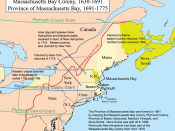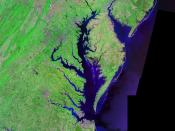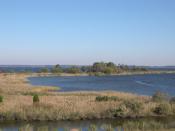Differences between the Chesapeake Bay and New England ColoniesThere are many key differences that distinguish the inhabitants of the New England colonies from those of the Chesapeake Bay colonies. These dissimilarities include but are not limited to the differences between the social structure, family life, forms of government, religion, and the lives of indentured servants and children in the two colonies.
The social structure and family life of the two colonies varied greatly. The inhabitants of the Chesapeake Bay colonies were never able to establish a successful social structure or sense of family life due primarily to the nature of its inhabitants. According to the essay ÃÂLooking Out for Number One: Conflicting Cultural Values in Early Seventeenth-Century VirginiaÃÂ, ÃÂàVirginia drew a disproportionately large number of street toughs, roughnecks fresh from wars in Ireland, old soldiers looking for new glory, naïve adventurers, mean-spirited sea captains, marginal persons attempting to recoup their losses.ÃÂ
(The Way We Lived 23). These settlers who colonized the Chesapeake Bay region, primarily being composed of males, came for only one reason and that was in order to make a profit. According to the essay ÃÂLooking Out for Number OneÃÂ, ÃÂthe pursuit of private gain outranked the creation of corporate communities.ÃÂ (The Way We Lived 25). As a result of this idea, on March 22nd, ÃÂÃÂ the Indians of the region launched a coordinated attack on the scattered, poorly defended white settlements, and before the colonists could react, 347 of them had been killed.ÃÂ (The Way We Lived 28). Due to the minute number of women who made the journey to the Chesapeake Bay, there was very little sense of family life in the Chesapeake Bay colonies. Contrary to the exploitive competitive individualism present in Virginia, as well as the rest of the Chesapeake Bay, ÃÂÃÂ a...


